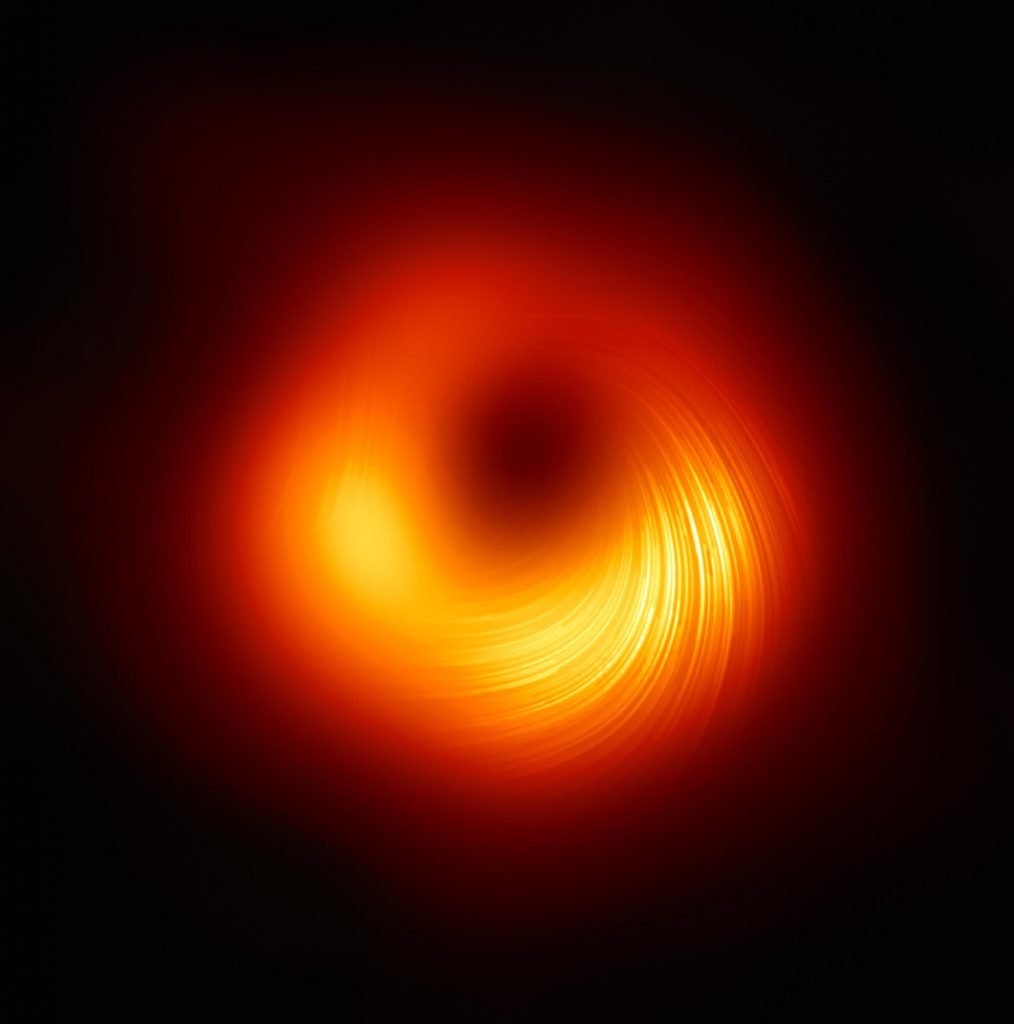Ever since I was a first grader I had a deep interest in Astronomy. During grade 3 I had started developing an interest in Chemistry. I enjoyed reading about these topics, because they are straight forward topics and not too ambiguous. And yes, science can become ambiguous, such as some of the stuff in quantum mechanics. So, in this post, I've decided to compile a list of things in Physics that interest me most. Just so you know, Einstein and Hawking really were the OG's.
1. Black Holes
 |
| Credit: EHT Collaboration |
When I learned about black holes in grade 2, you could say I entered some sort of existential crisis. I was so scared about the fact that our milky way had a black hole in the middle of it that I had my mother assure me that we wouldn't be swallowed by it.
These days, as I read more and more about the topic, I just get more and more perplexed by how complex our universe is, and what this extreme body does to it.
For a basic overview, a black hole is a body that forms when a star collapses. The gravity that was left from the star is so strong that it forms a singularity. This is a point in spacetime where the gravitational field is so incredibly strong that nothing can escape it's pull within a specific radius around the singularity, called the event horizon. Gravitational fields weaken over distance, like any other field. Oh, and spacetime is infinite within a black hole. So time essentially stops for everything inside of it.
Luckily there are ways black holes can disappear. That is through Hawking Radiation.
2. Casimir Effect (Quantum flux)
 |
| "File:Effetto Casimir.png" by Casimir_plates.svg: Emok derivative work: Codas2 (talk) is licensed under CC BY-SA 3.0. |
This is so freaking interesting!!! I read this on the Quantum app, which explains quantum physics in a very basic way.
This phenomena happens when folds form within spacetime, creating "shells" of particles. This theory was observed when two plates were put so close together that photons started forming between the two plates. This can also occur within the vacuum of space. Space itself can contain a non-zero amount of energy, causing these vacuum fluctuations. This creates particles in the form of a particle-antiparticle pair. They generally immediately annihilate each other though, to adhere to the conservation of energy (first law of thermodynamics)
3. Hawking Radiation
Hawking Radiation combines quantum fluctuations with black holes. Around the event horizon, quantum fluctuations occur making the particle-antiparticle pair, but with photons. One of the pairs get absorbed by the black hole, while the other survives. Since the pair was borrowing energy from the vacuum, the energy needs to be returned, which gets taken from the black hole. That's when the black hole starts evaporating. The escaped photons form a ring of light around the black hole, as seen in the photo of the black hole above.
4. Quantum Tunneling
Another crazy thing. This happens when particles phase through other particles or escape a force even when they do not have the energy to do so. UHHH YES! I said PHASE. When not observed, particles can turn into matter waves. Generally the smaller the object is, the easier it is for the object to become a matter wave, exist in a state of superposition and move to spaces they generally couldn't. Superposition literally means they may occupy all of the spaces at once. When you look at the orbitals of a molecule for example, electrons occupy the entire orbital, until they are observed- which will make their wave function collapse.
5. Quantum Entanglement
The most popular one and probably the reason why so many people become quantum physicists. Einstein called this "spooky action at a distance". Particles can sometimes be entangled. This causes particles to become linked in such a way that measuring one of the particles will always cause the other particle to have a predetermined result, even after measuring it. When you measure or observe a particle, it's wave function will collapse.
Comments
Post a Comment